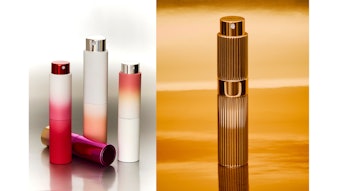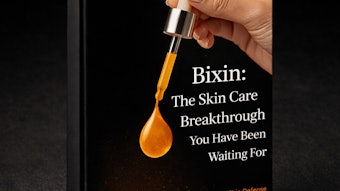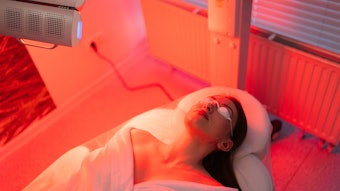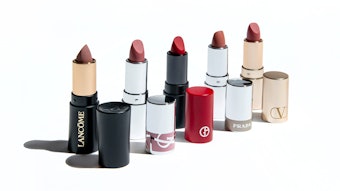
Wearing SPF is essential, but there are other factors that can contribute to sun protection. The experts at Universal Drugstore have put together a helpful guide to highlight what can diminish our sun protection even when SPF is applied.
Jamie Winn PharmD, medical director at Universal Drug Store, said, “To effectively protect yourself from the sun's harmful rays, it's crucial to adopt a comprehensive approach to sun safety. Start by choosing a broad-spectrum sunscreen with SPF 30 or higher, ensuring it guards against both UVA and UVB rays. Apply sunscreen generously and frequently, at least every two hours or more often if swimming or sweating. Additionally, seek shade during peak sun hours, typically between 10 a.m. and 4 p.m., when UV radiation is strongest. Wearing protective clothing, such as wide-brimmed hats, sunglasses with UV protection, and long-sleeved shirts and pants made from tightly woven fabrics, provides an added layer of defense. Remember to be mindful of reflective surfaces like water, sand, and snow, which can intensify UV exposure. Lastly, stay hydrated and consider the cumulative effects of sun exposure over time, taking proactive steps to minimize risk and maintain healthy skin. By incorporating these strategies into your routine, you can enjoy outdoor activities safely while safeguarding your skin from sun-related damage.”
Related: Why 87% of Americans Ignore SPF & What Estheticians Can Do to Help
1. Anti-aging ingredients
Anti-aging ingredients such as retinol, alpha-hydroxy acids (AHAs), beta-hydroxy acids (BHAs) like salicylic acid, benzoyl peroxide, and other exfoliants can be significantly affected by sun exposure. These ingredients can increase the skin's sensitivity to sunlight, making it more prone to sunburn and irritation.
Moreover, exposure to UV radiation can degrade the effectiveness of active ingredients like retinol and AHAs/BHAs over time, reducing their anti-aging benefits. To protect the skin and maintain the potency of these products, it's essential to use them as directed, usually in the evening, and to apply sunscreen with a high SPF daily. This helps mitigate potential adverse reactions and ensures that these powerful ingredients continue to deliver their intended skin-renewing benefits effectively.
2. Medications
Antidepressants can be affected by sun exposure primarily through interactions that increase sensitivity to sunlight, a condition known as photosensitivity. Some antidepressant medications, such as tricyclic antidepressants (TCAs) and selective serotonin reuptake inhibitors (SSRIs), can amplify the skin's reaction to UV radiation. This heightened sensitivity may lead to increased risk of sunburn, skin rash, or other adverse skin reactions.
In addition to photosensitivity, sunlight can also potentially affect the stability and efficacy of antidepressants. Like antibiotics, certain antidepressants may degrade when exposed to UV light over time, which could reduce their therapeutic effectiveness.
3. Antibiotics
Antibiotics can be affected by sun exposure primarily due to a phenomenon known as photodegradation. This occurs when the active ingredients in antibiotics undergo chemical changes when exposed to ultraviolet (UV) radiation from sunlight. UV rays can break down the molecular structure of antibiotics, reducing their effectiveness or altering their properties.
To prevent this, it's often recommended to store antibiotics in opaque containers and to avoid exposing them to direct sunlight. Patients taking antibiotics should also be cautious about prolonged sun exposure, as the combined effects of medication and UV radiation could diminish the antibiotic's potency. Healthcare providers typically advise patients on proper storage and usage guidelines to ensure optimal effectiveness of antibiotics during treatment.
4. Perfume and Aftershave
Many fragrances contain ingredients that can cause a reaction known as phototoxicity or photoallergy when exposed to sunlight. These reactions can lead to skin irritation, redness, or even more severe burns when combined with sun exposure. Therefore, it's important to be cautious with fragranced products during sunny days and to consider using them in areas of the body less exposed to direct sunlight to minimize the risk of adverse reactions.
5. Food and drink
Certain foods and drinks can potentially contribute to increased susceptibility to sunburn or skin sensitivity. Citrus fruits like lemons, oranges, and grapefruits contain psoralens and furocoumarins, which can make the skin more sensitive to sunlight, potentially increasing the risk of sunburn. Alcohol consumption can dilate blood vessels and dehydrate the body, making the skin more sensitive to UV rays. This can potentially increase the likelihood of sunburn.
Spicy foods, especially those containing capsaicin found in chili peppers, can sometimes cause skin reactions and increase sensitivity to sunlight. High glycemic index foods that rapidly increase blood sugar levels, such as sugary snacks, white bread, and pastries, may contribute to inflammation that can exacerbate sunburn symptoms. Processed and fried foods often contain unhealthy fats that can promote inflammation in the body, potentially affecting the skin's ability to recover from sun exposure.









